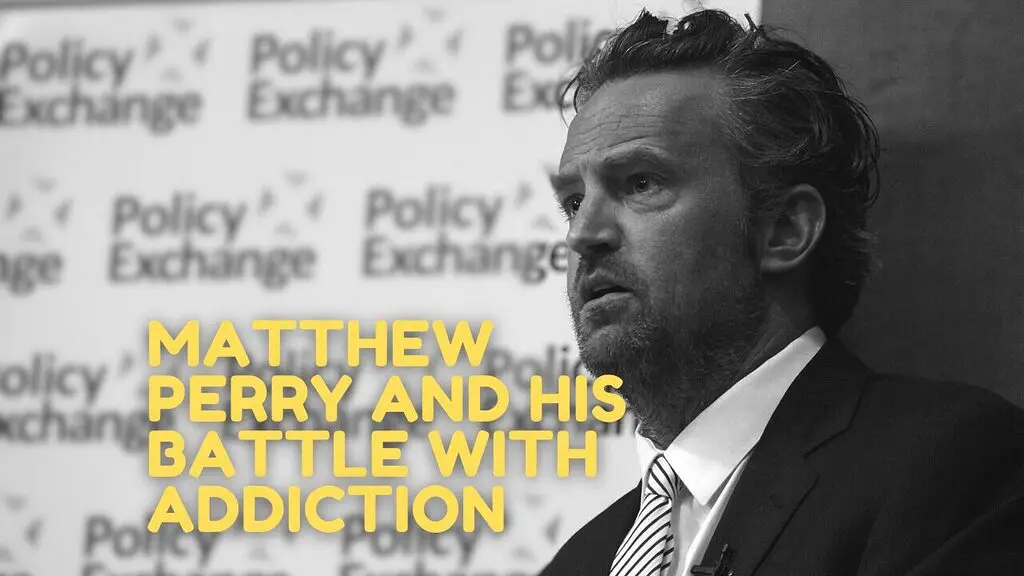What Did Matthew Perry Die From?
On Oct. 28, 2023, the news of Matthew Perry and his untimely death plunged the entertainment world into mourning. Best known for his role as Chandler Bing on the iconic television show “Friends,” responders found the actor unresponsive in a hot tub at his Los Angeles home. He was 54. The Los Angeles County medical examiner’s office later revealed that the “acute effects” of ketamine, an anesthetic with psychedelic properties, along with drowning, coronary artery disease, and the effects of the opioid buprenorphine, caused his death.
Perry had openly struggled with substance abuse and addiction for much of his life, a battle he did not hide from the public eye. In fact, he spent more than half of his life seeking treatment and rehabilitation for his addictions, as he detailed in his 2022 memoir, “Friends, Lovers and the Big Terrible Thing.” His death highlights the complex and often misunderstood nature of addiction, as well as the potential risks associated with the use of substances like ketamine, even when used under medical supervision for conditions such as depression, anxiety, and PTSD.
The Rise of Ketamine as a Treatment and Recreational Drug
Ketamine, originally developed as an anesthetic for surgeries, has gained popularity in recent years as an off-label treatment for severe depression and other mental health conditions resistant to traditional therapies. Its rapid action and potential for significant improvement in symptoms have made it a beacon of hope for many. However, the drug’s increasing use in medical settings and recreational circles comes with significant risks.
The autopsy report for Perry noted that he had been undergoing ketamine infusion therapy, a treatment method for severe depression. However, the levels of ketamine found in his system at the time of death were far higher than what would be administered in a therapeutic setting, indicating an acute intoxication that contributed to his death. This tragic event underscores the U.S. Food and Drug Administration’s warnings about the dangers of compounded versions of ketamine for treating psychiatric disorders, emphasizing the need for caution, regulation, and oversight in its use.

The Dangers of Ketamine Abuse
While ketamine can offer a lifeline to those with intractable mental health issues, its abuse carries grave consequences. At high doses, ketamine can cause cardiovascular overstimulation and respiratory depression, both potentially lethal conditions. The dissociative effects of the drug, sought after by recreational users, can also lead to dangerous behaviors, accidents, and, as in Perry’s case, fatal outcomes when combined with other health issues or substances.
Moreover, ketamine’s potential for dependency and abuse cannot be overlooked. Individuals using the drug outside of a controlled medical environment are at risk of developing a tolerance, leading to increased consumption and a higher likelihood of overdose. The societal and personal impacts of ketamine abuse are profound, affecting not only the individuals but also their families, friends, and communities.
Remembering Matthew Perry
Perry’s death has shed light on the complexities of addiction and the risks associated with the use of powerful drugs like ketamine. Beyond his struggles, Perry should be remembered for his immense talent, his contributions to the world of entertainment, and his efforts to speak candidly about his battles with addiction. His life and death serve as a poignant reminder of the ongoing need for awareness, support, and research in the fight against addiction and mental health issues.
As the world continues to grapple with these challenges, Perry’s legacy, both on and off the screen, will undoubtedly continue to impact and inspire. His story is a tragic testament to the personal battles many face in silence and a call to action for better understanding, treatment, and compassion for those struggling with addiction.
In light of Perry’s tragic death due to the acute effects of ketamine, the topic of addiction and its comprehensive treatment is more relevant than ever. Texas Recovery Centers stands as a beacon of hope and support for individuals struggling with substance use and mental health disorders. With a personalized approach to recovery, the center emphasizes the uniqueness of each person’s journey towards wellness.

Personalized Care at Texas Recovery Centers
At Texas Recovery Centers, the belief is that recovery and people are at the heart of their mission. The center offers a wide array of treatment options, ensuring that each client receives the specific care they need for a successful recovery. From detox to residential treatment, partial hospitalization programs, outpatient programs, and telehealth services, Texas Recovery Centers tailors its services to meet the individual needs of its clients.
A Multifaceted Approach to Treatment
Understanding that addiction often comes hand in hand with mental health disorders, Texas Recovery Centers provides a holistic approach to treatment. Therapy options include cognitive-behavioral therapy (CBT), dialectical behavior therapy (DBT), family therapy, adventure and nature therapy, and equine-assisted therapy. These evidence-based therapies aim to address the root causes of addiction, offering clients a path to long-lasting recovery.
Inclusivity and Specialized Programs
Texas Recovery Centers is committed to creating a welcoming, non-judgmental environment where all individuals can seek treatment. Recognizing the diverse needs of its community, the center offers specialized programs for veterans, expectant mothers, and the LGBTQIA+ community. This inclusivity ensures that everyone has access to the care and support they need, regardless of their background or circumstances.
Accreditation and Excellence
Texas Recovery Centers underscores its commitment to providing high-quality care by adhering to the American Society of Addiction Medicine (ASAM) standards and earning accreditations from prestigious organizations such as the National Association for Behavioral Healthcare (NABH), National Association of Addiction Treatment Providers (NAATP), and the Joint Commission of Accreditation of Healthcare Organizations. These affiliations attest to the center’s dedication to the health and safety of its patients.
The Legacy of Awareness and Hope
Perry’s struggle with addiction and his untimely death highlight the critical need for accessible, comprehensive treatment options for those battling substance use and mental health disorders. Texas Recovery Centers represents a vital resource in this fight, offering hope and support to those in need. By emphasizing personalized care, a range of therapy options, and inclusivity, the center is dedicated to helping individuals achieve genuine, long-lasting recovery.
For more information about Texas Recovery Centers and its programs, individuals are encouraged to reach out by calling 888-354-2194 or completing our convenient online form. Through commitment and compassion, the center continues to make a significant impact on the lives of those it serves, fostering healing and hope for a brighter, substance-free future.












